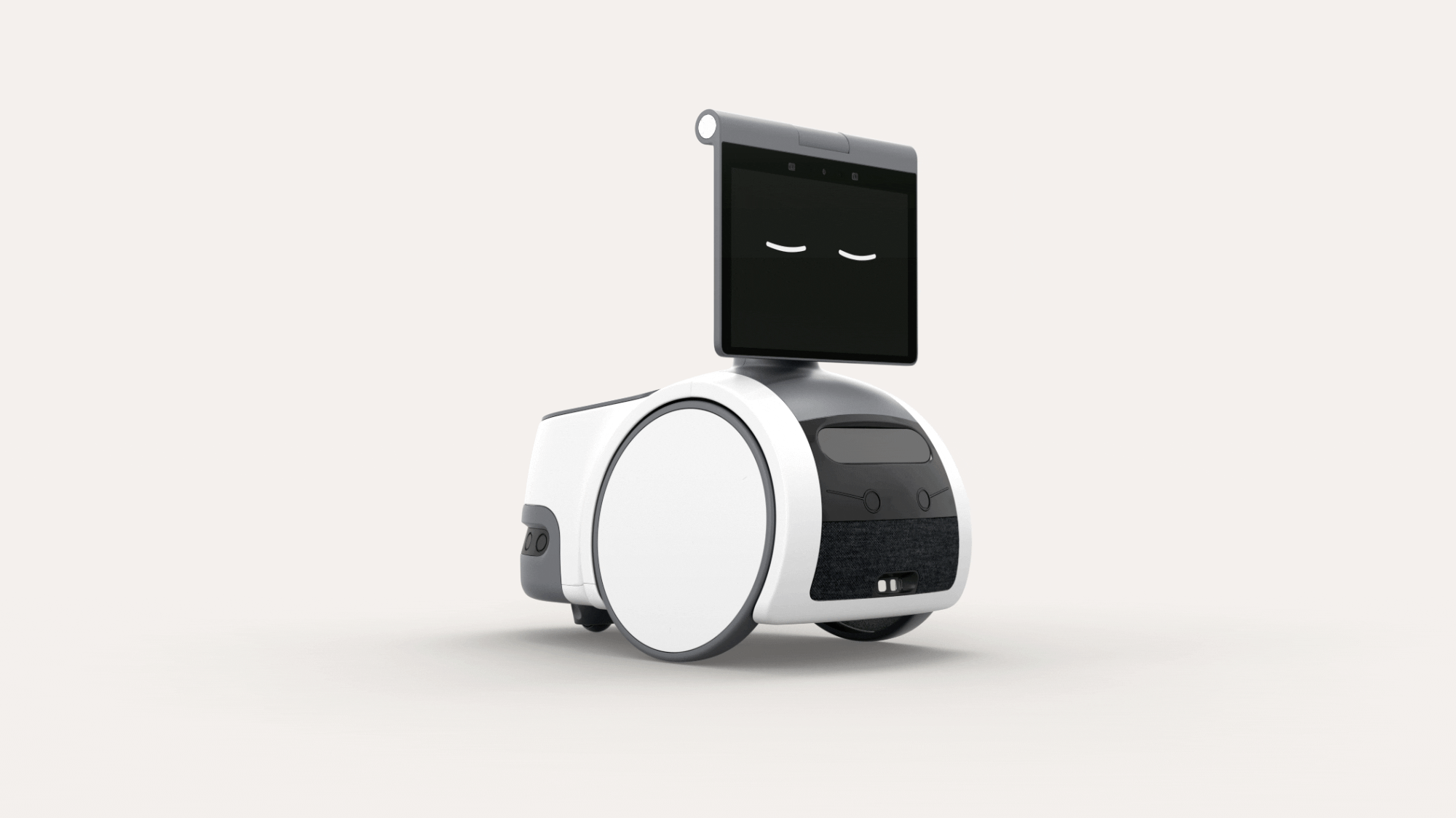What do you get when you mix Amazon’s Alexa voice assistant with an Echo Show tablet, give it a hefty dose of artificial intelligence, integrate it all with Ring’s home security system, and let it roll around your home autonomously? You get a robot for the sake of a robot.
Actually, you get Astro, Amazon’s long-rumored home robot. The company has been working on this for nearly four years, and it has plans for Astro. It’s just not quite sure exactly what those are yet, so it’s offering the robot by invitation only, hoping thousands of early customers can help define what it’s for. The 2-foot-tall, 20-pound robot has a 10-inch touchscreen; includes an array of sensors, cameras, and microphones; and can wheel, multi-directionally, around your home. It costs $1,000.
Astro underscores Amazon’s seriousness about robotics, an area the company has invested heavily in for years as part of its warehouse network. It also shows how serious Amazon is about getting its devices—and its services—into every corner of our homes. But Astro, as adorable as it is, is a robot without a cause, at least for now. Amazon’s hardware chief Dave Limp identified a few potential use cases in an interview with WIRED, including eldercare and home security. But ultimately, Limp says, the company wants to get it into customers’ hands so it can identify “unique use cases” for the bot.
Robot Rock
The Astro bot is powered by two Qualcomm chips, with artificial intelligence processing built into the chipset. Its operating system is based on FireOS and Linux. It has five motors to give it some oomph, and it can carry a small payload on the back (anything that weighs less than 5 pounds).
Its face is a plain-looking tablet, but this is where you can swipe or tap your way through commands or video chats without having to rely on voice control. It’s also where you’ll find Astro’s eyes, which are meant to give it more life than the cold, glass screens we’re used to. Alexa is built into Astro too, so you can also dad-joke with it to your heart’s content.
Early reports have likened this to a robot vacuum cleaner, and they’re not wrong, minus the whole clean-your-house part. Astro is battery operated and, when it’s depleted, finds its way back to a fixed charging dock. Even more akin to a robot vacuum cleaner are the array of sensors in the bot: Astro is packed with “ultrasonic sensors, time-of-flight cameras, and other imaging tools that let the robot know what’s around it and where it’s going,” according to The Verge. It also has a periscope camera that extends from the top of the bot.

